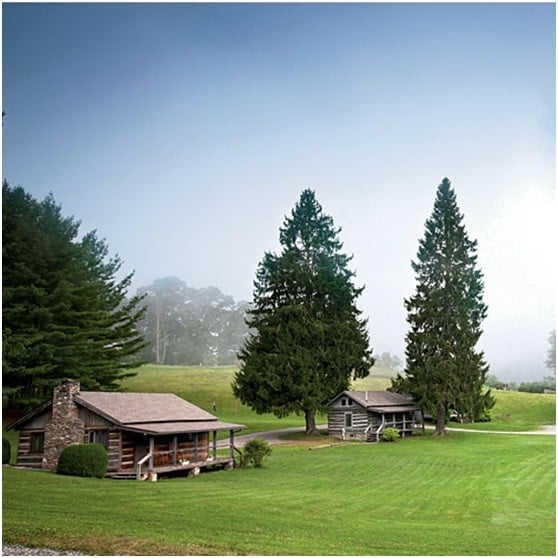Your Escape To The Country: Choosing The Right Rural Lifestyle

Table of Contents
Location, Location, Location: Finding Your Ideal Rural Setting
Finding the right rural property is crucial for a successful transition to country living. The ideal countryside location will depend on your individual needs and preferences. Key factors to consider include proximity to amenities, commuting distance, and the character of the surrounding rural community.
-
Proximity to Amenities: While the appeal of rural life often lies in its seclusion, access to essential services is vital. Consider the distance to grocery stores, hospitals, schools, and pharmacies. A longer commute might be acceptable if you work remotely, but regular access to healthcare is always important. Think about the availability of veterinary services if you plan on keeping animals.
-
Commuting Distance: If you need to commute to a city for work, carefully evaluate the travel time and potential challenges of rural roads. Factor in traffic, weather conditions, and the overall time commitment involved in your daily commute. Living further out might offer more seclusion and larger properties, but this will impact your daily routine.
-
Rural Community and Culture: Research the local community thoroughly. Is it a close-knit community with strong social bonds, or is it more spread out and less interconnected? Attend local events, talk to residents, and gauge whether the community's culture aligns with your lifestyle. Understanding the local culture is key to a smooth integration into your new rural setting.
-
Natural Environment: The beauty of the natural environment is a major draw for many seeking a rural lifestyle. Consider the proximity to mountains, forests, lakes, rivers, or other natural features that appeal to you. Think about access to hiking trails, fishing spots, or opportunities for outdoor recreation.
-
Internet Access and Cell Service: In today's digital age, reliable internet access and cell service are increasingly important, even in rural areas. Check the availability and speed of internet and cell service in your potential locations. Poor connectivity can significantly impact your ability to work remotely or stay connected with family and friends.
Lifestyle Considerations: What Kind of Rural Life Suits You?
The kind of rural lifestyle that suits you will depend heavily on your individual preferences and priorities. Do you envision a self-sufficient lifestyle, or are you looking for something more relaxed?
-
Self-Sufficiency and Sustainability: Are you drawn to the idea of a self-sufficient lifestyle, perhaps with gardening, animal husbandry, or other sustainable practices? This will significantly impact your property choice and the amount of land you require. Consider the skills and resources necessary for self-sufficiency.
-
Work and Commuting: Will you be working remotely, commuting to a nearby town, or working from home? Your work situation will heavily influence the type of property and location you choose. Consider the distance to your workplace and the availability of reliable transportation.
-
Hobbies and Activities: What hobbies and activities will you pursue in your rural setting? Hiking, fishing, hunting, gardening, or other outdoor pursuits? Ensure your chosen location offers the opportunities for leisure activities that are important to you.
-
Community Involvement: How much community involvement are you seeking? Some rural communities are very close-knit, while others are more spread out. Consider whether you want to be actively involved in local events and organizations or prefer a more independent lifestyle.
-
Seclusion vs. Community: Do you prefer a secluded setting far from neighbors, or do you prefer a more bustling rural town with more social interaction? Your preference for seclusion or community will greatly influence your location choice.
Financial Planning for Your Country Escape
Relocating to the country involves significant financial considerations beyond just the purchase price of a rural property.
-
Rural Property Costs: Research property values and typical costs in your desired area. Prices vary greatly depending on location, size, and amenities. Obtain multiple valuations to get a realistic estimate of property values.
-
Renovation Costs and Ongoing Maintenance: Factor in the potential costs of renovating or repairing your rural property. Older homes often require more maintenance than newer ones. Budget for regular upkeep and repairs to avoid unexpected expenses down the line.
-
Financing a Rural Property: Secure financing through a mortgage specifically designed for rural properties, as they may have different requirements than urban mortgages. Understand the interest rates and repayment terms thoroughly.
-
Taxes and Insurance: Property taxes and insurance premiums can vary significantly in rural areas. Research the local rates before making a purchase decision. Factor in the higher costs of rural home insurance due to greater distances to emergency services.
-
Utilities and Upkeep: Plan for the ongoing costs of utilities, such as electricity, water, heating, and internet. Consider the cost of maintaining the property, including landscaping, repairs, and snow removal (where applicable).
Practical Considerations: Preparing for the Transition to Rural Living
Moving to the country involves adapting to a different way of life. Preparing for these practical aspects is crucial for a smooth transition.
-
Local Regulations and Building Codes: Research local regulations and building codes before making any renovations or alterations to your property. This will prevent potential delays and legal issues down the line.
-
Rural Infrastructure Challenges: Understand the potential challenges of rural infrastructure, including slower internet speeds, limited public transportation, and potential difficulties with utilities during severe weather.
-
Home Maintenance: Learn basic home maintenance skills, or find reliable local contractors for repairs. Rural areas often have fewer service providers, making self-sufficiency even more important.
-
Community Integration: Familiarize yourself with local customs and community dynamics to integrate smoothly into your new surroundings. Attend local events, introduce yourself to neighbors, and engage with the local community.
-
Seasonal Changes and Weather: Prepare for potential seasonal changes and harsh weather conditions. This might include snow removal, dealing with extreme temperatures, and preparing for potential power outages.
Conclusion
Choosing the right rural lifestyle requires careful planning and consideration of various factors. By carefully evaluating your location preferences, lifestyle needs, financial resources, and practical considerations, you can confidently embark on your country escape. Remember to thoroughly research potential locations and communities to find the perfect fit for your vision of peaceful living.
Ready to begin your search for your perfect rural lifestyle? Start exploring available properties and communities today! Make your dream of country living a reality. Find your ideal escape to the country now!

Featured Posts
-
 Porsche 956 Nin Tavan Sergilemesinin Arkasindaki Gercek
May 25, 2025
Porsche 956 Nin Tavan Sergilemesinin Arkasindaki Gercek
May 25, 2025 -
 Departure Of Guccis Chief Industrial And Supply Chain Officer
May 25, 2025
Departure Of Guccis Chief Industrial And Supply Chain Officer
May 25, 2025 -
 Alfred Dreyfus A Posthumous Promotion In The French Parliament
May 25, 2025
Alfred Dreyfus A Posthumous Promotion In The French Parliament
May 25, 2025 -
 Bbc Radio 1 Big Weekend 2025 Your Comprehensive Ticket Buying Guide
May 25, 2025
Bbc Radio 1 Big Weekend 2025 Your Comprehensive Ticket Buying Guide
May 25, 2025 -
 Avrupa Borsalarinda Duesues Stoxx Europe 600 Ve Dax 40 In 16 Nisan 2025 Performansi
May 25, 2025
Avrupa Borsalarinda Duesues Stoxx Europe 600 Ve Dax 40 In 16 Nisan 2025 Performansi
May 25, 2025
Latest Posts
-
 Amsterdam Experiences 7 Stock Market Plunge Trade War Impact
May 25, 2025
Amsterdam Experiences 7 Stock Market Plunge Trade War Impact
May 25, 2025 -
 Amsterdam Stock Market Decline Aex Index Hits 1 Year Low
May 25, 2025
Amsterdam Stock Market Decline Aex Index Hits 1 Year Low
May 25, 2025 -
 Significant Stock Market Drop In Amsterdam 7 Decline Due To Trade War
May 25, 2025
Significant Stock Market Drop In Amsterdam 7 Decline Due To Trade War
May 25, 2025 -
 Amsterdam Stock Market 7 Opening Drop Fuels Trade War Anxiety
May 25, 2025
Amsterdam Stock Market 7 Opening Drop Fuels Trade War Anxiety
May 25, 2025 -
 Relx Ai Strategie Zorgt Voor Robuuste Prestaties Zelfs In Moeilijke Tijden
May 25, 2025
Relx Ai Strategie Zorgt Voor Robuuste Prestaties Zelfs In Moeilijke Tijden
May 25, 2025
